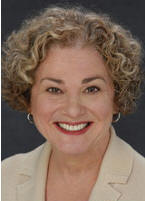By Elayne Savage, Ph.D.
 It happens so fast. All it takes is a wilting look, an insulting tone of voice, or a raised eyebrow. You find yourself taking it personally and your knee-jerk response seems all out of proportion to the event itself. You wonder, "Where on earth did that come from?"
It happens so fast. All it takes is a wilting look, an insulting tone of voice, or a raised eyebrow. You find yourself taking it personally and your knee-jerk response seems all out of proportion to the event itself. You wonder, "Where on earth did that come from?"
When we take things personally we perceive someone's actions as a personal affront, an insult or slight. Someone says or does something (or neglects to say or do something) and we find ourselves getting triggered and overreacting.
Taking things personally involves:
-
Assuming there is intent even when there is not.
-
Taking things the wrong way.
-
Believing people are taking sides - for you or against you.
-
Getting upset when other people don't see things the way you do.
-
Feeling slighted or wronged or attacked.
-
Taking something as a personal failure - feeling blamed or blaming yourself.
When we take something personally we're feeling rejected in some way.
This rejection is most likely connected with feeling "dissed" - discounted, disdained, disapproved of, disbelieved, dismissed, or disregarded. These feelings come from early experiences with peers, teachers, siblings, parents or other family members, and they replay many times in our work or personal relationships.
How can we not take things so personally?
First, create enough distance to slow your overreaction. Taking a "time out" works great. Counting to ten and breathing slowly is one kind of "time out. Excusing yourself to get a drink of water is another.
Next, become aware of the rejection aspects -this includes judgements and criticism. It's a lot easier to change behavior when you're aware of it and it's no longer a "blind spot." By recognizing signs of rejection and noticing how you react to it, you're taking the first steps in giving yourself some distance.
Ask yourself:
"Might I be taking this personally?"
"What part of me is feeling rejected, judged or criticized? "
"What am I telling myself?"
"Is this an old message? "
"Where might it come from? "
Then, walk alongside yourself: What do you notice about your reactions? This "naming" and "noticing" opens up space for making choices about how you want to deal with rejection. You don't have to continue down the same path once you realize how you got there. You can learn to choose to back up to that fork in the road and change direction.
Finally, try to put yourself in the other person's shoes. If you can get out of the center of your own orbit, you won't feel so much like a target. And in most instances, whatever was said or done says more about the other person and their fears than it does about you!
Don't be tempted to guess what the other person might have meant, because you really can't read their mind. Ask them if your perception of what they said is what they meant. Then you don't have to dwell on trying to figure it out. It will save lots of energy.
Ten sure-fire ways to avoid rejection
- Remind yourself, it's more about the other person than it is about you.
- Try to separate the "personal" from the "professional."
- Don't equate "not thinking" with "not caring" about you. Sometimes other people just don't consider things the same way you do.
- Don't presume - check things out. Filling in gaps with your own ideas about what's going on takes a lot of energy and you just might be wrong!
- Don't try to read someone's mind-or expect them to read yours.
- Try to put yourself in the other person's shoes. How might they be feeling?
- Be direct. Ask for what you need.
- Practice "time outs." Take a breath, count to ten.
- Being able to identify when you are taking something personally, gives you the ability to make choices about how you want to proceed.
- And DON'T TAKE IT PERSONALLY!
© Elayne Savage, Ph.D.
Permissions
Feel free to use these articles as long as you include
>>Back to Article List